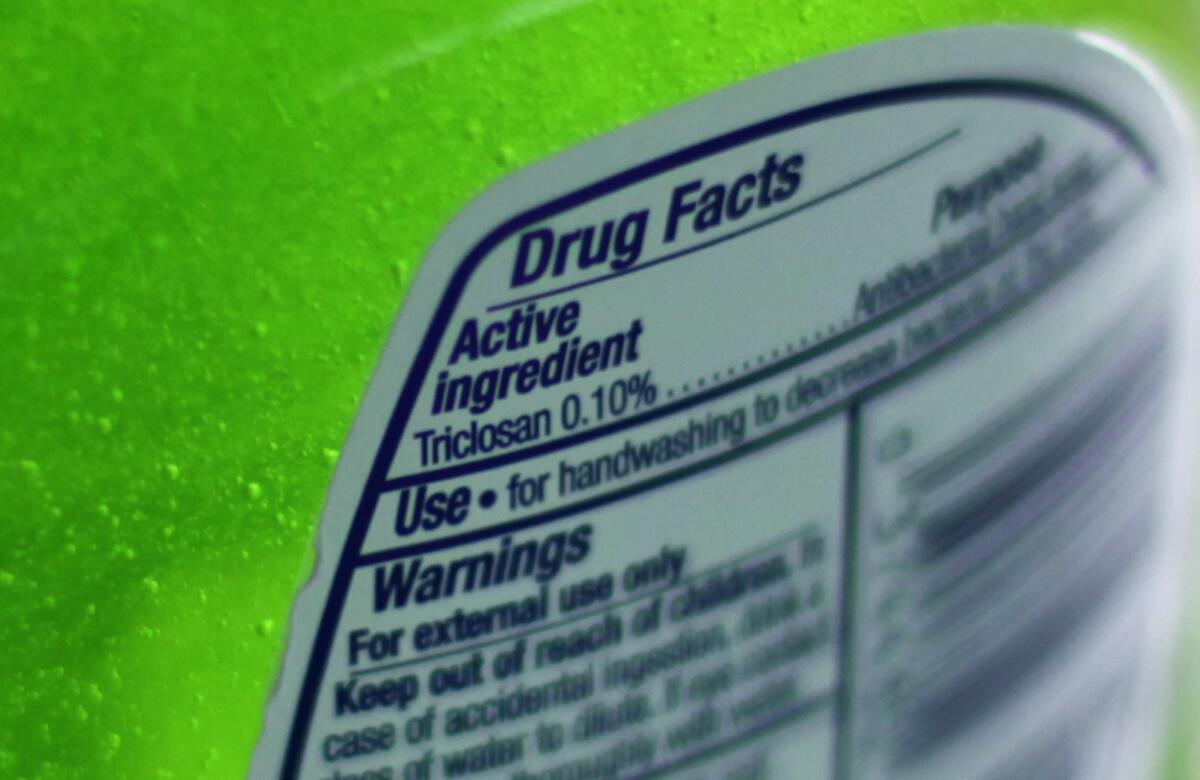FDA: No evidence antibacterial soap more effective than plain soap

- Share via
The U.S. Food and Drug Administration on Monday proposed a new rule that would force companies that make antibacterial soaps to prove that their products are effective and safe.
Federal regulators said that the two most common active ingredients in antibacterial soaps — triclosan and triclocarban — are no more effective at preventing the spread of illnesses than washing with plain soap and water.
Furthermore, the FDA said that regular use of these soap products may contribute to bacterial resistance to antibiotics and may also have unanticipated hormonal effects.
“New data suggest that the risks associated with long-term, daily use of antibacterial soaps may outweigh the benefits,” said Colleen Rogers, a lead microbiologist at the FDA.
The proposed rule, open to public comment for 180 days, does not apply to hand sanitizers, hand wipes or antibacterial soaps used in healthcare settings such as hospitals.
Manufacturers who want to continue marketing affected antibacterial products will be required to provide regulators with additional data on the products’ effectiveness, including data from clinical studies to demonstrate that these products are superior to non-antibacterial soaps in preventing human illness or reducing infection, the agency said in a statement.
The FDA’s proposed rule comes less than a week after the agency said it plans to phase out non-medical uses of antibiotics on farms. Officials said regular use of medicine on livestock has contributed to the rise of antibiotic-resistant “superbugs.”
More to Read
Inside the business of entertainment
The Wide Shot brings you news, analysis and insights on everything from streaming wars to production — and what it all means for the future.
You may occasionally receive promotional content from the Los Angeles Times.










